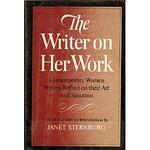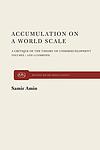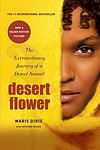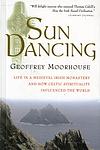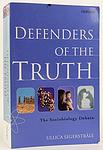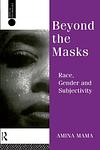The Greatest Austrian, Unknown "Nonfiction" Books Since 1950
Click to learn how this list is calculated.
This list represents a comprehensive and trusted collection of the greatest books. Developed through a specialized algorithm, it brings together 300 'best of' book lists to form a definitive guide to the world's most acclaimed books. For those interested in how these books are chosen, additional details can be found on the rankings page.
Genres
Countries
Date Range
Reading Statistics
Click the button below to see how many of these books you've read!
Download
If you're interested in downloading this list as a CSV file for use in a spreadsheet application, you can easily do so by clicking the button below. Please note that to ensure a manageable file size and faster download, the CSV will include details for only the first 500 books.
Download-
1. Philosophical Investigations by Ludwig Wittgenstein
This book is a seminal work in 20th-century philosophy, presenting a detailed critique of the notion that our language directly corresponds to reality. The author argues that the meaning of words is not inherent, but rather derives from their use within specific forms of life. The book also introduces the concept of language games, suggesting that our understanding of language is akin to learning the rules of a game. The author further explores the limits of language, the nature of understanding, and the relationship between public and private language.
-
2. Night by Elie Wiesel
This book is a memoir of the author's experiences during the Holocaust, specifically in the Auschwitz and Buchenwald concentration camps. The narrative focuses on the relationship between a father and son under the most extreme circumstances, the loss of faith in God, humanity, and in each other, and the horrifying reality of the systematic genocide of six million Jews during World War II. The book is a poignant and stark examination of the depths of human evil and the enduring power of hope and survival.
-
3. The Constitution of Liberty by Friedrich von Hayek
This book is a comprehensive analysis of the concept of liberty, emphasizing the importance of individual freedom in political, societal, and economic contexts. The author argues that a free society, where individuals can act according to their own decisions and plans, is the most effective system for human progress. He also explores the relationship between law and liberty, the role of government in a free society, and the challenges to liberty posed by concepts such as social and economic justice.
-
4. The Uses of Enchantment by Bruno Bettelheim
"The Uses of Enchantment" is a psychological analysis of fairy tales and their importance in childhood development. The book argues that these stories allow children to navigate their emotions and understand aspects of life they are yet to experience. By exploring various themes, such as separation anxiety, oedipal conflict, and sibling rivalry, through well-known fairy tales, the author demonstrates how these narratives contribute to a child's moral education and understanding of the human nature.
-
5. On Aggression by Konrad Lorenz
"On Aggression" is a scientific study that explores the concept of aggression in both animals and humans from an ethological (study of animal behavior) perspective. The author argues that aggression is an innate and necessary instinct that has helped species survive and evolve. However, he also emphasizes that this instinct, when unchecked or misdirected, can lead to destructive behavior and violence. The book provides a comprehensive analysis of the biological roots of aggression, its role in the evolution and survival of species, and its implications for human society.
-
6. Seven Years in Tibet by Heinrich Harrer
This book is a travel memoir that recounts the author's escape from a British internment camp in India during World War II and his subsequent journey through the Himalayas to Tibet, where he becomes a tutor and friend to the Dalai Lama. The book provides a detailed account of Tibetan culture, customs, and the political turmoil leading up to the Chinese invasion, as seen through the eyes of a foreigner who spent seven years living there.
-
7. The Writer on Her Work by Janet Sternburg
"The Writer on Her Work" is a collection of essays by various female authors who discuss their experiences, challenges, and perspectives on writing. The book explores the complexities of being a woman in the literary world, shedding light on topics such as gender bias, the struggle for recognition, and the balance between personal life and professional aspirations. It provides a unique insight into the creative process, revealing how these women navigate their craft amidst societal expectations and personal obstacles.
-
8. The Tao of Physics by Fritjof Capra
The book explores the parallels between modern physics and eastern mysticism. It draws connections between quantum mechanics, relativity theory and concepts in Hinduism, Buddhism, Taoism, and Zen. The author argues that the two seemingly disparate areas of study - physics and mysticism - both seek to understand the fundamental nature of the universe and that they do so in strikingly similar ways. The book challenges conventional thinking and encourages readers to see the world from a more holistic, interconnected perspective.
-
9. Three Case Histories by Sigmund Freud
"Three Case Histories" is a compilation of three of the most famous case studies by a renowned psychoanalyst, exploring the complexities of the human mind. The book includes the cases of 'Little Hans', a boy with a phobia of horses, 'The Rat Man', an obsessive-compulsive patient, and 'The Wolf Man', a wealthy Russian aristocrat suffering from a variety of psychoneurotic symptoms. The author uses these cases to demonstrate his theories on psychoanalysis, childhood sexuality, the interpretation of dreams, and the subconscious.
-
10. All But My Life by Gerda Weissmann Klein
"All But My Life" is a poignant memoir of a young woman's six-year ordeal as a victim of Nazi cruelty. The narrative follows her life from a peaceful, upper-middle-class childhood in Bielitz, Poland, through her horrifying experiences and loss during the Holocaust, to her miraculous survival and marriage to an American soldier. It is a story of courage, resilience, and the enduring power of hope.
-
11. Wittgenstein's Nephew by Thomas Bernhard
"Wittgenstein's Nephew" is a semi-autobiographical novel that explores the friendship between the narrator and his friend Paul, who is the nephew of the famous philosopher Ludwig Wittgenstein. The story takes place in Vienna and is set against the backdrop of the Austrian mental health system. The novel delves into themes of sanity, insanity, and the fine line that separates the two, while also offering a critique of Austrian society. It is a meditation on the nature of illness, both physical and mental, and the impact it has on personal relationships and one's perception of the world.
-
12. Tongue Set Free by Elias Canetti
"Tongue Set Free" is a captivating memoir that explores the author's personal journey of self-discovery and identity formation. Through vivid and introspective storytelling, the book delves into the complexities of Canetti's multicultural upbringing, his struggles with language and communication, and his quest for freedom and belonging. With poetic prose and profound insights, the author reflects on the power of words, the influence of cultural heritage, and the transformative nature of embracing one's true self.
-
13. E=Mc2 by David Bodanis
The book provides a layperson-friendly explanation of the world's most famous equation, delving into the history, science, and people behind its development. It explores the biographies of the scientists who contributed to our understanding of energy and mass, including the equation's originator, and the practical and philosophical implications of the equation's assertion that energy and mass are interchangeable. The narrative also discusses the equation's role in the development of atomic energy and its impact on modern physics, offering an accessible journey through the annals of scientific thought and the revolutionizing discoveries that shape our understanding of the universe.
-
14. Accumulation On A World Scale by Samir Amin
"Accumulation On A World Scale" by Samir Amin is a thought-provoking analysis of the global capitalist system and the dynamics of accumulation. Amin explores the historical development of capitalism, its inherent contradictions, and the ways in which it perpetuates inequality and exploitation on a global scale. He argues that the capitalist system is fundamentally flawed and unsustainable, offering alternative perspectives on economic development and proposing radical changes to create a more equitable and just world.
-
15. An Imagined World by June Goodfield
"An Imagined World" is a poignant exploration of the human condition, set against the backdrop of World War II. The narrative delves into the life of a young woman who, amidst the chaos and destruction of the war, finds herself in a remote English village. There, she grapples with the complexities of love, loss, and the search for personal identity. As she interacts with the villagers and refugees who have also sought sanctuary, the protagonist confronts the harsh realities of the world outside while navigating the intricate web of human relationships and the enduring hope for a better future. The book is a testament to the resilience of the human spirit and the power of imagination as a source of comfort and escape in times of turmoil.
-
16. The Padārthatattvanirūpaṇam Of Raghunātha śiromaṇi by Karl H. Potter
"The Padārthatattvanirūpaṇam of Raghunātha Śiromaṇi" is a critical examination and translation of a seminal work in Indian philosophy by Raghunātha Śiromaṇi, who was a prominent figure in the Navya-Nyāya school. This book, authored by Karl H. Potter, provides an in-depth analysis of Raghunātha Śiromaṇi's thoughts on metaphysics, focusing on the nature of reality and categorization of existence. Potter's work not only translates the original text but also contextualizes it within both historical and philosophical frameworks, offering insights into the development of Indian philosophical thought and its intricate argumentative techniques.
-
17. Averroes by George F. Hourani
This book provides a comprehensive study of Averroes, a seminal Islamic philosopher from the medieval period, known for his profound influence on both the Islamic and Christian intellectual worlds. The text delves into Averroes' life, his philosophical and theological ideas, and particularly his commentaries on Aristotle, which played a crucial role in shaping medieval scholasticism. The author explores how Averroes' attempts to harmonize philosophy with Islamic theology sparked significant debates and how his ideas were received, critiqued, and integrated into European thought, thereby leaving a lasting legacy on the development of Western philosophy and science.
-
18. The Samaritan Treasure by Marianne Luban
"The Samaritan Treasure" is an intriguing historical novel that delves into the ancient world, weaving a tale of mystery and adventure around the biblical account of the Good Samaritan. The narrative follows an archaeologist who stumbles upon a clue to the legendary treasure of the Samaritans, leading to a thrilling quest that spans continents and centuries. As the protagonist deciphers ancient texts and navigates dangerous liaisons, the story explores themes of faith, cultural heritage, and the enduring allure of hidden riches. The novel is a blend of meticulous historical research and imaginative storytelling, offering readers a captivating journey through time and the human spirit's quest for discovery.
-
19. Desert Flower by Waris Dirie, Cathleen Miller
"Desert Flower" is a powerful autobiography that tells the story of a girl born into a nomadic tribe in the Somali desert. The girl, subjected to the brutal tradition of female genital mutilation at a young age, escapes an arranged marriage at 13 and ends up in London, where she works various jobs before being discovered as a model. Her rise to fame in the fashion industry is juxtaposed with her personal journey to raise awareness about the harmful cultural practice she endured and advocate for its eradication.
-
20. The Man Who Loved Only Numbers by Paul Hoffman
"The Man Who Loved Only Numbers" is a captivating biography that delves into the life of a brilliant mathematician. From his early years as a child prodigy to his groundbreaking contributions in number theory, the book explores the eccentricities and obsessions that consumed his life. With a unique blend of mathematical concepts and personal anecdotes, the biography paints a vivid portrait of a man who was truly devoted to the world of numbers.
-
21. Sun Dancing by Geoffrey Moorhouse
"Sun Dancing" presents a vivid tapestry of medieval Irish monasticism, combining historical facts with imaginative storytelling. The book delves into the austere and spiritually intense lives of monks on Skellig Michael, a remote island off the Irish coast, during the early centuries of Christianity in Ireland. Through a blend of narrative and analysis, the text explores the harsh realities of monastic life, the cultural and religious contributions of these communities, and the broader context of Irish and European history during this period. The author weaves together the daily routines, spiritual practices, and legendary tales of these monks, providing a window into a world where faith and endurance converge amidst the isolation of the Atlantic Ocean.
-
22. Why Not Me? by Wendy L. Bovard
"Why Not Me?" is a poignant memoir that delves into the author's personal journey through adversity and resilience. It explores the challenges faced when life takes unexpected turns, such as dealing with illness, loss, and the search for self-identity. The narrative is a testament to the human spirit's capacity to overcome obstacles and find meaning in the face of hardship. With honesty and vulnerability, the author shares her experiences, offering insights and inspiration to others who may be navigating their own paths through difficult times, ultimately asking the universal question of why some are chosen to endure certain trials and how they can emerge stronger.
-
23. Defenders Of The Truth by Ullica Segerstrale
This book provides a comprehensive examination of the sociobiology debate, a contentious discussion that emerged in the 1970s and 1980s regarding the application of evolutionary theory to human behavior. It delves into the intellectual clash between prominent scientists and scholars, exploring the ideological, academic, and political tensions that fueled the debate. The narrative not only charts the historical development and key arguments of both sides but also scrutinizes the broader implications of this debate for the scientific community and society at large. Through detailed analysis and interviews, the work sheds light on the complexities of scientific discourse, the role of science in society, and the intricate interplay between scientific inquiry and ethical considerations.
-
24. The New Science of Politics by Eric Voegelin
"The New Science of Politics" is a seminal work in political philosophy that explores the nature of political societies, the symbolism of political power, and the essence of modernity. It delves into the evolution of political thought, from ancient civilizations to the modern era, and critically examines the ideologies that have shaped the contemporary political landscape. The author argues that understanding the spiritual and religious dimensions of political reality can provide a more comprehensive view of society and governance. The book is a profound meditation on the philosophy of history and a radical critique of modern political ideologies.
-
25. Beyond The Mask, Race, Gender And Identity by Amina Mama
In this thought-provoking book, the author delves into the complex intersections of race, gender, and identity. Through a combination of personal narratives, historical analysis, and social theory, Mama explores how these constructs shape and influence our lives. She challenges conventional ideas and offers a critical examination of power dynamics, highlighting the ways in which race and gender intersect to create unique experiences and oppressions. With a focus on African women's experiences, Mama calls for a reimagining of identity that goes beyond simplistic categorizations, and instead embraces the complexity and fluidity of human existence.
Reading Statistics
Click the button below to see how many of these books you've read!
Download
If you're interested in downloading this list as a CSV file for use in a spreadsheet application, you can easily do so by clicking the button below. Please note that to ensure a manageable file size and faster download, the CSV will include details for only the first 500 books.
Download





